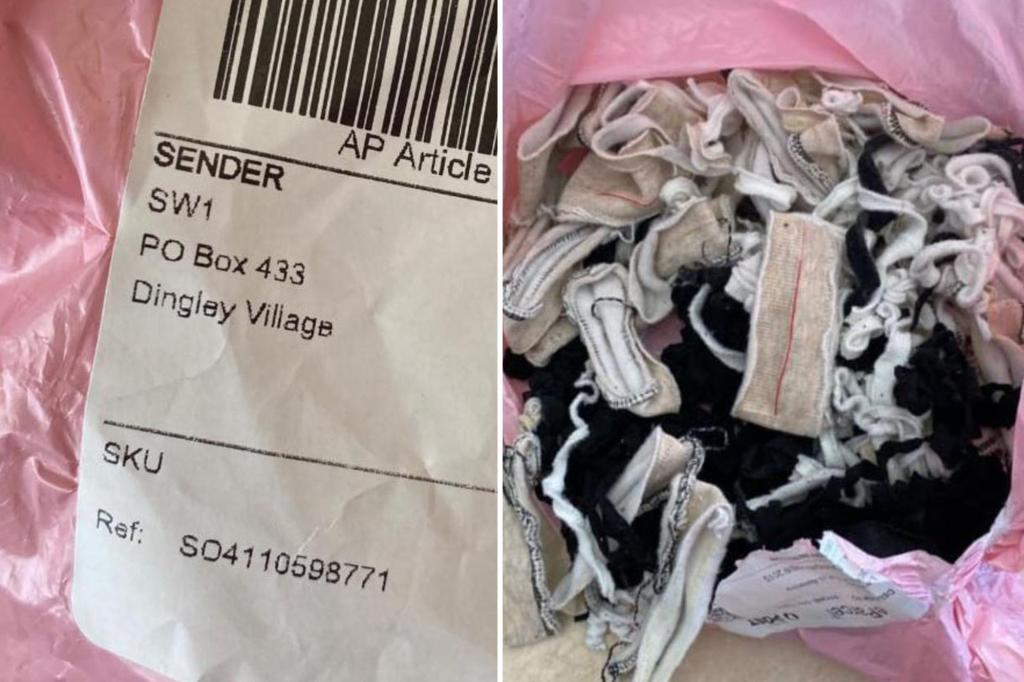The “brushing” scam, a deceptive practice involving unsolicited parcels, has recently surged in Australia, triggering concern and confusion among recipients. These packages, often containing bizarre items like fabric scraps, stuffed animals, or even stinky rags, arrive unannounced, leaving recipients bewildered and apprehensive. The scam operates on two primary fronts. Firstly, it aims to lure recipients into a trap through QR codes often included in the package. Driven by curiosity, recipients who scan these codes are redirected to fraudulent websites designed to phish personal information or install malware. The second objective of brushing is to artificially inflate the online reputation of sellers. By sending unsolicited packages, scammers generate “proof of delivery” which they then exploit to fabricate positive reviews under the recipients’ names. This manipulation boosts the seller’s visibility and credibility on e-commerce platforms, enticing unsuspecting customers.
Social media platforms have become inundated with reports from individuals across Australia recounting their experiences with this peculiar scam. Many express bewilderment at receiving packages containing random, valueless items, often shipped from the same PO Box in Dingley Village, Victoria. The shared experiences, detailing the contents of the packages, from hole-ridden socks to flower petals, highlight the widespread nature of this scam. Furthermore, the reports underscore the anxiety and unease caused by receiving unsolicited mail, especially when it bears the recipient’s full name, address, and phone number, raising concerns about potential data breaches and identity theft. The unexpected nature of these deliveries and the unusual contents amplify the recipients’ apprehension, with many questioning the motivations and potential risks associated with the unsolicited deliveries.
The brushing scam poses a significant threat to consumers and online marketplaces. By exploiting publicly available personal information, scammers not only deceive recipients but also manipulate the e-commerce ecosystem. The influx of fake reviews generated through brushing undermines the integrity of online ratings and reviews, misleading consumers and potentially driving business towards fraudulent sellers. The practice also raises concerns about data privacy and security. The ease with which scammers obtain personal information, including full names, addresses, and phone numbers, highlights vulnerabilities that need to be addressed by both individuals and online platforms. The brushing scam underscores the importance of vigilance and cautious online practices.
E-commerce platforms like Amazon have recognized the growing threat of brushing scams and issued warnings to their customers. They advise recipients of unsolicited packages to verify that the item is not a gift from a friend or family member and to report suspicious deliveries to their investigations team. This proactive approach helps to identify and address fraudulent sellers who engage in brushing while also educating customers about the risks associated with such scams. The warnings emphasize the need for consumers to be cautious and report any suspicious activity, promoting a collaborative effort between platforms and users to combat fraudulent practices.
The Australian Competition and Consumer Commission (ACCC) has also addressed the rise in package scams, particularly during peak shopping periods like Christmas and the Boxing Day sales. The ACCC warns consumers against clicking on links in text messages or emails related to deliveries, even if they are expecting a package. Instead, they recommend verifying delivery status directly through the official Australia Post app or website, or the courier service handling the delivery. This advice mitigates the risk of phishing attacks and malware installations often associated with brushing scams. The ACCC’s emphasis on safe online practices empowers consumers to protect themselves from fraudulent activities during periods of increased online shopping.
Despite the rising prevalence of brushing and other online scams, there has been a slight decline in scam-related financial losses in Australia in 2023. Australians lost $1.6 billion USD to scams, marking a 13 percent decrease compared to the previous year. This reduction could be attributed to increased awareness campaigns, improved security measures implemented by online platforms, and greater vigilance among consumers. While the drop in losses is encouraging, it underscores the continued need for education and proactive measures to combat the evolving tactics employed by scammers. The ongoing fight against online fraud requires a collaborative effort between government agencies, businesses, and individuals to mitigate risks and protect consumers. The brushing scam serves as a timely reminder of the importance of remaining vigilant and cautious in the digital landscape.


